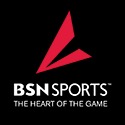Well-Rounded Meals
A strong diet for young athletes includes well-rounded meals. A balanced plate should feature a mix of carbohydrates, proteins, and fats, along with vitamins and minerals. This ensures athletes get the energy and nutrients needed to excel and recover well. Including a variety of foods from each group keeps meals interesting and meets nutritional requirements.
Staying Hydrated
Staying hydrated is crucial for maintaining peak performance and avoiding dehydration, which can impair physical and cognitive function. Young athletes should aim to drink water regularly throughout the day and increase fluid intake before, during, and after practice or games. During sporting activities, it’s recommended that athletes consume between 150 mL and 300 mL of fluid every 15 to 20 minutes to prevent dehydration and maintain performance levels.
Signs of dehydration to watch for include dry mouth, fatigue, dizziness, and dark urine. Recognizing these symptoms early can help athletes take corrective action and stay at the top of their game.
Carbs for Fuel
Carbohydrates provide the energy necessary for young athletes to train and compete effectively. Whole grains, fruits, and vegetables are excellent sources of carbs that also offer fiber and essential nutrients. Incorporating a variety of these foods into meals helps maintain energy levels and supports overall health. Whether it’s a bowl of oatmeal for breakfast, a banana as a pre-workout snack, or a serving of brown rice at dinner, ensuring a steady intake of healthy carbs is key.
Protein for Muscle Recovery
Protein is vital for muscle repair and recovery. For young athletes aged four to 18, protein should make up about 10% to 30% of their total energy intake to support muscle development and recovery. Lean meats, poultry, fish, eggs, dairy products, legumes, and nuts are excellent sources of protein. Including these foods in daily meals enhances recovery and muscle growth.
Beneficial Fats
Including healthy fats in the diet is important for hormone production and overall health. Fats should make up 25% to 35% of a young athlete’s total energy intake to ensure optimal performance and well-being. However, it’s crucial to limit saturated fats to no more than 10% of the total energy intake. Sources of healthy fats include avocados, nuts, seeds, olive oil, and fatty fish, which provide essential fatty acids and other vital nutrients.
Key Vitamins and Minerals
Vitamins and minerals are essential for various bodily functions, including energy production, bone health, and immune function. For instance, young athletes should aim for 600 IU of vitamin D per day to support bone health and overall performance. Foods rich in essential vitamins and minerals include leafy greens, dairy products, fruits, and lean meats. Ensuring a varied diet helps in meeting the nutritional needs and optimizing performance.
Meal Timing Strategies
Consuming balanced meals at strategic times can significantly impact athletic performance. Eating a combination of carbs and proteins 2 to 3 hours before practice or competition supplies the energy required for peak performance. After workouts, it’s beneficial to focus on foods that restore glycogen and support muscle repair, such as chicken sandwiches or smoothies with fruit and yogurt. Additionally, incorporating smaller, nutrient-rich snacks between meals can help sustain energy levels throughout the day. By aligning meal timing with activity schedules, young athletes can maximize their performance and recovery.
Smart Snacking
Young athletes need snacks that provide both energy and essential nutrients. Opt for snacks that combine carbohydrates and proteins for sustained energy and muscle support. Portable options include trail mix, protein bars, fruit with nut butter, and cheese sticks. These snacks are not only convenient but also rich in the nutrients necessary to keep athletes energized. Another excellent choice is Greek yogurt with berries, which provides a balance of carbs and proteins. Whole-grain crackers with hummus or veggies with dip are also good options. Having a variety of healthy snacks on hand helps athletes stay fueled and ready for action.
Nutrition for Recovery
After intense workouts or competitions, it’s vital for young athletes to focus on replenishing their energy stores and supporting muscle repair. Consuming a combination of carbohydrates and proteins shortly after physical activity can expedite recovery. Foods like chocolate milk offer an excellent ratio of carbs to protein, making them an ideal choice for post-exercise recovery. Other great options include smoothies made with fruit and yogurt, turkey sandwiches, or a mix of nuts and dried fruit. These foods provide the nutrients necessary to restore glycogen levels and repair muscle tissue efficiently. Ensuring that recovery nutrition is prioritized helps athletes maintain performance and prepare effectively for their next training session or game.
Tuning Into Your Body
Understanding and responding to your body’s signals is essential for optimal performance. Young athletes need to recognize when they’re hungry and when they’re full, adjusting their intake accordingly. This awareness helps prevent overeating or undereating, both of which can negatively impact athletic performance and overall health.
Athletes should pay attention to how different foods make them feel during training and competition. Some may find that certain foods give them more energy or help them recover faster, while others may cause discomfort or sluggishness. Keeping a food diary can be a useful tool to track these patterns and make informed decisions about what to eat and when.
Additionally, it’s important to consider individual preferences and dietary restrictions. What works for one athlete might not work for another, so personalizing nutrition plans based on unique needs and experiences is key. Consulting with a nutritionist or dietitian can provide tailored advice that aligns with specific athletic goals and health conditions.
Hydration is another critical aspect of tuning into your body. Monitoring signs of dehydration, such as dry mouth or dark urine, and responding by increasing fluid intake can prevent performance dips and health issues.
Lastly, mental and emotional well-being also play a role in how young athletes approach their nutrition. Stress, anxiety, and other emotional factors can influence eating habits. Practicing mindfulness and stress management techniques can help maintain a balanced approach to nutrition, ensuring that food choices support both physical and mental health. By staying attuned to their body’s needs, young athletes can create a sustainable and effective nutrition strategy that enhances their athletic performance and overall well-being.

